Photographs: Reuters BS Reporter in New Delhi
Central trade unions have questioned Maruti Suzuki's decision to terminate the services of 500 of its permanent workers, alleging not just violation of the Industrial Disputes Act, but also immaturity on the management's part in failing to arrive at a peaceful settlement of the dispute.
Clashes between workers and the management at Maruti Suzuki's Manesar plant on July 18 had left one dead and several injured. Following this, about 500 of the company's workers were sacked. Maruti Suzuki Chairman R C Bhargava had said, "Our officials injured in the incident on July 18, as well as those who managed to escape, have identified workers involved in the violence.
We have lost confidence in them and have issued termination notices to over 500 such employees. It is possible more notices would be sent once more people are identified."
...
Maruti sack order illegal, say trade unions
Photographs: Reuters
However, trade unions have said mere loss of faith in workers was not sufficient reason for terminating their services, and this reason would not pass the test of courts of law. Various trade unions, including the Congress-affiliated Indian National Trade Union Congress and the Left-affiliated Centre for Trade Unions (Citu) and All India Trade Union Congress (Aituc), are holding talks on an action plan to thwart Maruti's decision.
"We will take legal recourse," said Tapan Sen, Citu general secretary and Member of Parliament in the Rajya Sabha.
"The company couldn't take such a decision without the permission of the state. It is totally unacceptable that the state government has allowed itself to be used by the company. The police are working as the company's peons and delivering letters to sacked employees," he added.
...
Maruti sack order illegal, say trade unions
Photographs: Reuters
Aituc national secretary D L Sachdeva termed the decision "mass victimisation", adding the union was consulting lawyers on whether the matter could be taken up in the high court or the Supreme Court, rather than an industrial tribunal or a labour court.
Sachdeva said the company's decision was not just against the Industrial Disputes Act, but also against the provisions of natural justice.
Saji Narayanan, national president of the Bharatiya Mazdoor Sangh, said such terminations had only have been allowed by the Supreme Court in exceptional circumstances.
...
Maruti sack order illegal, say trade unions
Photographs: Reuters
However, the court had specified the circumstances, and these couldn't be generalised, he added. Even if the court were to admit Maruti had to dismiss 500 people because it had lost faith in them, the company would have to prove the crime of each individual.
No court would dismiss 500 people as criminals without examining evidence for the crime, said Narayanan, a lawyer.
The unions were unanimous in saying Maruti Suzuki stared at court orders to take back most of these workers, along with a heavy compensation, including the salaries denied to them.
...
Maruti sack order illegal, say trade unions
Photographs: Reuters
They also stated the absence of central trade unions had been responsible for the violence being witnessed in the industry.
Narayanan said the Maruti killing was an instance of the kind of killings seen in central China during the recession, when large units were shut and workers were jobless.
As China then had a single union, which was too weak to take up the cause of workers, what followed was violence, he said. Such cases were described by western media as gory reactions, he added.
...
Maruti sack order illegal, say trade unions
Such reactions were likely in special economic zones and regions in which the mechanism of a labour commissioner was being dispensed with, Narayanan said.
A weak union led to such desperate expressions of anger, he warned, adding the killing of a manager in a textile unit in Coimbatore and another at a plant near Pondicherry were due to central unions ceasing to operate there, and Maoist outfits taking their place.
The unions said the company shouldn't look at the incident without considering the causes that led to it. If the management remained indifferent to the plight of workers, discontent was bound to show, they said, adding workers, trade unions and the management all had their respective duties.

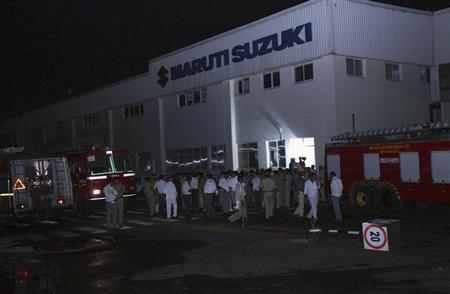
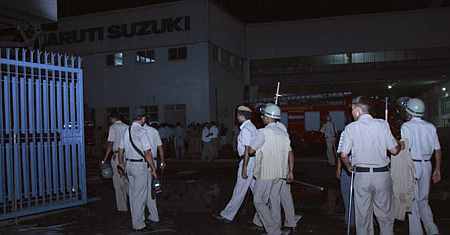
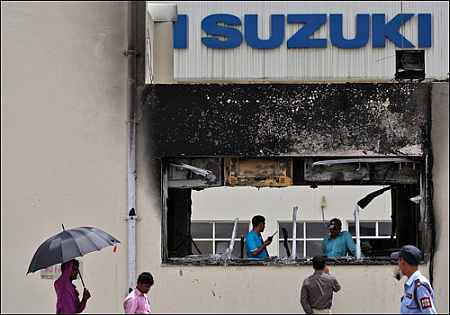
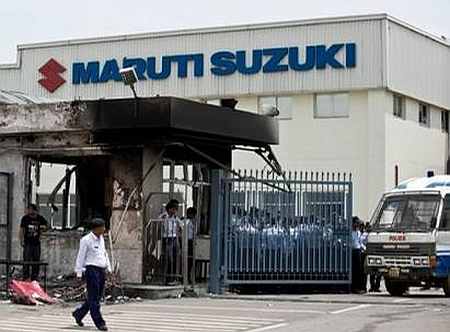
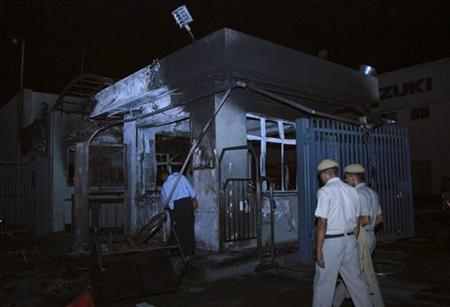


article